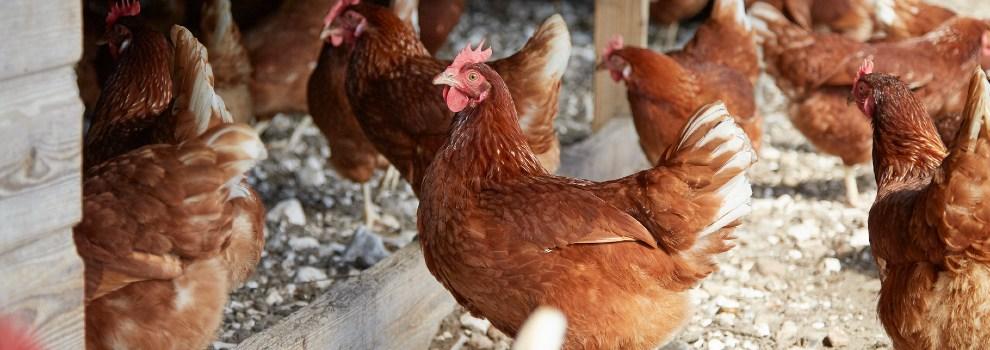Laying Hens & Battery Farming - Chicken Welfare | RSPCA - RSPCA
We want to see all laying hens kept in well-managed free-range or barn systems instead. We're working very hard to try to improve the conditions in which all laying hens are reared, transported and slaughtered/killed, and to get better laws to protect them.
The behaviour of laying hens
Hens are naturally inquisitive animals. They have a strong desire to carry out their natural behaviours, which include:
- Dustbathing - this helps them remove parasites, keeps their skin and feathers in good condition and helps keep their body temperature comfortable. Birds can spend a lot of their time dustbathing each day, and it's important for their physical and mental wellbeing.
- Perching - hens like to roost on perches at night with their flockmates. In the wild, this behaviour protects them from predators and also helps to conserve body heat.
- Exploring - hens like to explore their surroundings, for example by pecking at objects and scratching at the ground to unearth things in the soil.
- Nesting - hens look at different places to find a suitable, enclosed nesting site, before starting their pre-laying behaviour and finally laying an egg.
- Comfort and grooming - these include feather ruffling, head scratching, body shaking, wing stretching and flapping.
- Noises - when hens aren't provided with access to something they need, such as a nest site or appropriate dustbathing material, they often make more noise out of frustration, sometimes producing a specific sound known as a 'gakel-call'. Hens also vocalise to communicate with their flock mates, for socialising and warning.
We believe that all hens should be kept in environments where they're able to do these important things.
Find out about the key welfare issues for egg-laying hens and learn how you can help improve their lives.

